While I was doing the research for this article I found a heading in a story that baldly stated, “All big corporations lie. If they don’t, they’d go out of business.” Poor grammar aside, I find this statement absurdly depressing. I may be on my own, but I think if customers pay you good money to provide them with something, you are morally obligated to be honest and upfront with them about your company and services.
I’m thinking most recently, of course, of the VW emissions scandal. In case you’ve been on the (blood) moon over the past few weeks you’ll know that the VW emissions scandal erupted on the weekend of the 19th/20th September 2015, when it emerged that the VW company had used software on many of their diesel models, that had been developed specifically to cheat emissions tests in the US.
VW have indicated today (20.09.15) that they will recall 11 million vehicles for a refit, in an ongoing attempt to try to save face and move on from the scandal. The new chief executive, Matthias Mueller, claims the company will start to ask owners of some diesel models to come in “in the next few days” for modifications. These modifications will mean the removal of the illegal software. There are estimates that the VW emissions scandal will cost the German company in excess of £4.2bn ($6.5bn).
While VW are taking the brunt of global scorn, on 28th September, Audi admitted that 2.1m of its cars were fitted with the same emission cheating software, and Skoda also claimed that 1.2 million of its cars are involved. The SEAT is also affected, and Volkswagen have suspended the research and development heads of Audi, and sports car maker Porsche. VW owns both Audi and Porsche.
Volkswagen has not yet made a statement about how many vehicles might be affected in the UK.
Yes, I’m shocked by the VW emissions scandal, but it’s not the first time big companies have lied to us or behaved terribly. Take a look at these 11 other examples.
1. Vibram ‘Five toe-glove’ sneakers
You may remember the FiveFingers running shoes that were all the rage in the noughties. Vibram claimed that the running shoes would help to strengthen muscles in the feet and lower legs, improve posture, stimulate neural function related to balance and agility, and “allow the foot and body to move naturally.” As it turns out, this was complete rubbish, and simply made up by the marketing folks.
Vibram USA ended up agreeing to pay $3.75 million to settle a class action brought by customers who asserted that these spurious claims lacked scientific merit. Evidence suggested that the “barefoot running shoes” yielded no health benefits.
2. Skechers
Another company whose product didn’t do as was claimed were Skechers. It transpired that their toning shoe did not in fact burn calories and firm thighs with every step. In 2012, Skechers reached a $40 million settlement with the Federal Trade Commission for making scientifically unfounded claims about its running shoes.
Skechers have a history of being ‘sketchy’ on facts anyway. Like many companies (especially pharmaceutical ones), results of research undertaken to prove the company’s claims may well have been paid for. A ‘Shape-Ups’ ad that featured an endorsement recommending the shoes based on an “independent” clinical study conducted by a chiropractor. Unfortunately the chiropractor in question was married to a Skechers marketing executive, and Skechers had paid for the “study.”
3. Olay
Embarrassingly for Olay (who have to compete with the economic power of superbrand “cos we’re worth it” L’Oréal), in 2009, British lawmakers had to push for a ban for adverts for Olay Definity eye cream. The adverts featured the impossibly smooth face of beloved British model, Twiggy, who at 59, was shown as being devoid of crow’s feet.
Olay came clean. They had retouched Twiggy’s photos, and the U.K.’s Advertising Standards Authority swiftly banned the ads, ruling they might give consumers a “misleading impression of the effect the product could achieve.”
4. Fat free
Consumers need to be wary of anything that says it is “low-fat”, “reduced fat” or “fat-free”. The insinuation is that anything that is fat free is healthier. This is not the case. Many fat free products are far from healthy. Food that has fat removed tends to be tasteless and most consumers would not eat this. Producers therefore load their products up with sugar, artificial sweeteners or other man-made chemicals. Fat is harmless and we need to consume a moderate amount of it in our diets. Sugar, especially processed sugar, is extremely bad for us.
Food manufacturers aren’t daft. If they are using anything controversial, they avoid telling us. New labelling standards force them to list the contents of food, so what do they do? They change the names or they use code. For example, in Europe MSG (monosodium glutamate) may be called E621 and Carrageenan may be called E407 and sugar will be called something healthier sounding, such as evaporated cane juice, which sounds natural, but is just sugar.
If you’re in doubt and you’re likely to have an adverse reaction to certain ingredients, google them.
5. BP
The oil spill (also known as the Deepwater Horizon oil spill or BP oil disaster, the Gulf of Mexico oil spill, and the Macondo blowout) began on 20 April 2010. Thanks to BP’s failure to follow safety regulations, management incompetence, and the company’s determined efforts to hide what they had done, this was an environmental disaster of epic proportions.
The Deepwater Horizon oil rig exploded and sank, taking eleven people with it. A sea-floor oil gusher flowed for 87 days, until it was (apparently) capped on 15 July 2010. The US Government estimated 4.9 million barrels of oil were discharged into the sea. Although the well was officially declared sealed on 19 September 2010, reports in early 2012 indicated the well site was still leaking. The oil caused extensive damage to marine and wildlife habitats and fishing, and badly affected tourism.
BP have had to pay millions of dollars in reparations, and is still fighting a lawsuit that claims that the oil company lied to the US government about the severity of the oil spill in order to save face. BP’s internal documents and emails regarding how much oil was spilled following the days of the explosion contradicted what was released to the government and the public, coming in at 20 times the amount they settled on when putting together their lie.
6. Listerine
In 2005, Listerine was ordered to pull adverts that claimed Listerine mouthwash was clinically proven to be as effective as floss in fighting tooth and gum decay. There was plenty of evidence, it transpired, that demonstrated that rinsing with a mouthwash is not as effective as flossing.
7. The Ford Pinto Memo
The Ford Pinto, launched in 1968, was a small car in a predominantly large car US market. It was badly designed, the fuel tank was positioned dangerously between the rear axle and rear bumper and in an accident, the fuel tank neck could, and did, tear away from the tank, allowing the petrol to pour beneath the car, at the risk of burning passengers to death if it caught fire.
Ford discovered the problem late in the testing phase and created a modified design to fix the issue, but it chose not to recall the cars that had already been sold. Analysis showed Ford that they ran the risk of causing 80 deaths. They valued each death at $200,000 each, and allowed $67,000 for 180 fewer serious burn injuries, with $700 for 2100 for slightly damaged vehicles.
A memo sent to the senior managers suggested that the total bill of $49.5 million for was far more acceptable than the $137 million Ford would need to find in order to fit the $11 replacement part in 12.5 million vehicles.
Subsequently, Mother Jones published the leaked memo in 1977 and won a Pulitzer Prize. Lawsuits followed, including one for Richard Grimshaw, who was awarded $2.5 million in compensation and $3.5 million in punitive damages against Ford for his disfiguring burns.
8. Coca Cola – not ‘the real thing’
Following its new water launch in 1999, Coca-Cola invested £7m in promoting Dasani, its own brand bottled water, and the second most popular in the US. There was just one snag. In spite of claims about its purity, Dasani was actually simple tap water that was drawn from the mains supply in Coca Cola’s factory in Kent.
Coca Cola argued that Dasani was “as pure as bottled water gets” due to a “highly sophisticated purification process”, but the UK water industry weren’t happy about the Coca Cola marketing of the product that implied that tap water was impure, (yes even though Coca Cola were actually using it).
Coca Cola stated that they would never say tap water wasn’t drinkable, “just that Dasani is as pure as water can get – there are different levels of purity”. Coca Cola outlined four stages their water went through including, being passed through three separate filters and being injected with “ozone” to keep the water sterile.
Meanwhile Barrie Clarke, then spokesman for suppliers’ representative Water UK, said: “We don’t think there are any impurities in tap water.”
Well, quite.
Unsurprisingly, Dasani slipped from public view quite quickly.
9. Nestlé
Possibly the most morally bankrupt of all global corporations is the Nestlé Corporation. They buy up water sources and then sell them back to the long suffering public. The city of Sacramento in the USA for example, is currently in the fourth year of a record drought. The Nestlé Corporation continues to bottle Sacramento’s city water to sell back to the Sacramento public at a huge profit.
It is claimed that the company drains up to 80 million gallons of water a year from Sacramento aquifers and many people have protested against Nestlé’s virtually unlimited use of water – up to 80 million gallons a year drawn from local aquifers – while Sacramentans (like other Californians) have had severe restrictions and limitations forced upon how much they can use – hence their need to use bottled water in the first place.
And don’t forget Nestlé were at the centre of a huge ethical storm regarding access to water of some of the world’s poorest inhabitants. According to the former CEO (and now Chairman of the largest food product manufacturer in the world), corporations should own every drop of water on the planet — and you won’t get any unless you pay up. In a video interview, Nestle Chairman Peter Brabeck-Letmathe asserted that water was not a basic right. In fact his company venture into struggling rural areas in order to extract the groundwater for their bottled water products, completely destroying the water supply of the area without any compensation.
Nestlé derive an astounding $35 billion in annual profit from water bottle sales alone.
10. The meat scandal
Remember 2013 and the meat adulteration scandal throughout Europe? Foods that were advertised or labelled as containing beef were found to contain undeclared or improperly declared horse meat, up to 100% of the meat content in some cases, or other meats such as pork. Horse DNA was discovered in frozen beef burgers sold in several Irish and British supermarkets. The study found that 23 out of 27 samples of beef burgers also contained pig DNA.
11. Phone Hacking
Perhaps the saddest scandal of all involved the News of the World. It’s rare for any British journalist to have an ethical reputation these days but revelations in 2005 shocked the UK to its core, when it was found that the News of the World (among other ‘news’papers) was hacking the phones of celebrities, politicians, sports stars and crime victims.
After a story about Prince William‘s injured knee appeared in the paper, the Royal Family instigated investigations. Clive Goodman, royal editor at the tabloid News of the World, and Glenn Mulcaire, a private investigator employed by the paper were arrested. They revealed that they’d obtained back-door codes used by network operators and used them to listen to several hundred messages. The Guardian subsequently revealed the extent of the scandal when it showed that News of the World’s parent company, News Group International, had paid out more than £1 million to settle lawsuits on the quiet about phone hacks and data theft.
What makes this case so incredibly sad is that the paper hacked the missing school girl, Milly Dowler’s phone, giving the police and her family the false hope that she was still alive.
So there you have it. The VW emissions scandal is just the tip of the iceberg. Perhaps all big companies lie to protect themselves and their profits. That’s really no way to run a business is it?
Over to you
What’s the worst instance of a company lying that you’ve heard of? Come and chat to us over on Facebook or leave a message below.
 Wholesale
Wholesale 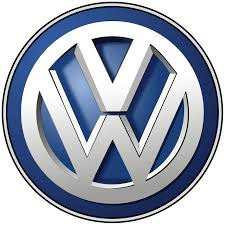
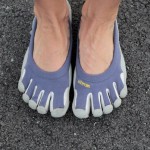
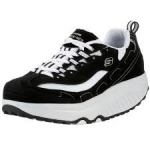
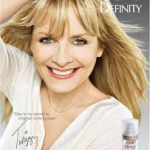
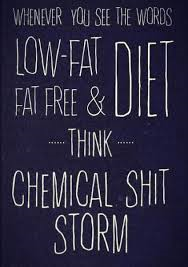

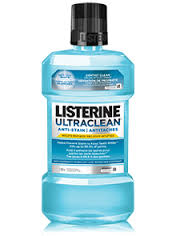
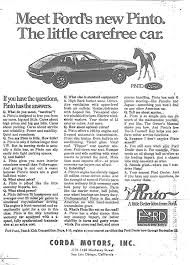
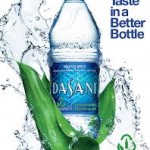
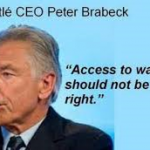
One Response to “VW Emissions Scandal and 11 other times big companies have lied to us”
The top 10 most shameful lies that companies have used to sell their products - ROI Overload • July 24th, 2019 at 2:59 pm
[…] we published our VW Emissions Scandal and 11 other times big companies have lied to us article (here) last week, oil giant BP has agreed to pay $20bn (£13.2bn) to settle claims in the USA following […]